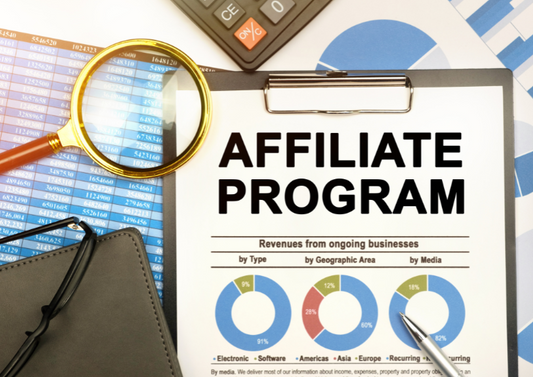Starting a business has its own many enormous advantages, but at the same time includes many choices waiting for you to make. After coming up with an idea, getting a name for your brand, and choosing a platform to operate, you need to decide what business model to follow.
In this article, we would like to show you five major choices that you can consider when starting everything. Depending on products and cost structure, we hope you will find the most suitable one for your business.
Dropshipping
Known as the most economical option business model, dropshipping has attracted thousands of entrepreneurs who want to make startup costs as small as possible. Besides, it is also ideal for those who don’t have or manage inventory.
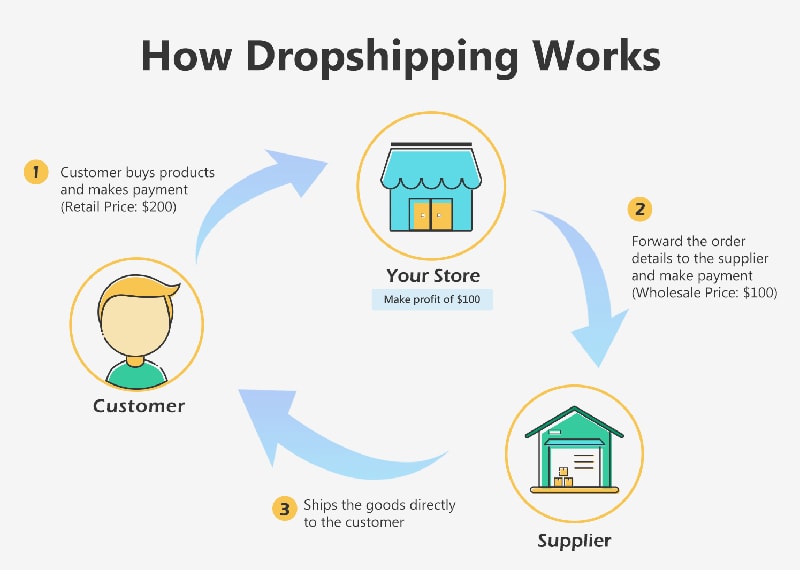
Advantages:
- Small Startup Costs: Due to the lack of carrying inventory, you don’t need to pay inventory costs, therefore reducing a substantial amount of money.
- Low Risk: You don’t take the risk of keeping items that aren't sold well.
- Streamline Sales: As you have another one fulfill the tasks of picking, packing, and delivering products, you can run your business from any place you like.
Disadvantages:
- Competitiveness: Low barriers to entry means more people will do it. If you want to pursue this kind of business model, you need to make yourself stand out from others.
- Low Margins: As you must pay for the drop ship partners, the profit margins will be slim, around 20%. For a decent profit, you had better sell as much volume as possible.
- Back Orders: Reliance on others’ inventory may lead to the situation in which you place shipment requests but the products are out of stock. It takes more time than normal delivery and somehow can damage your reputation as a retailer.
Manufacturing
Do you have a unique idea? Are you confident that people will buy your products once they are published? If the answer is Yes, then manufacturing is most suitable for you.
Manufacturing is divided into two lenses: private label and white label. The former means that products are produced and only sold under a business name, while the latter means that products are produced by one manufacturer but sold by many retailers under their names.
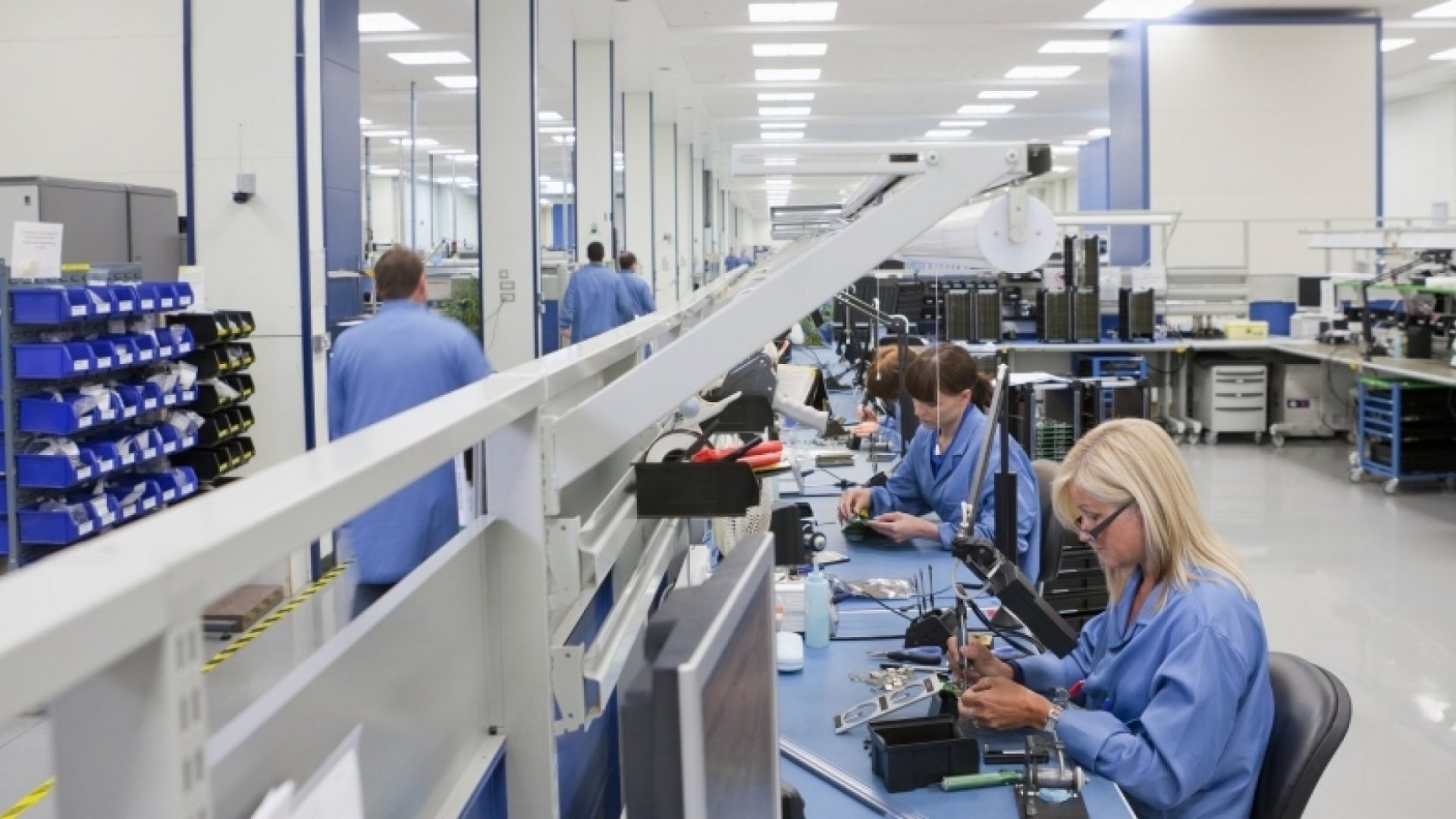
Advantages:
- High Profit: Manufacturers can have the lowest cost per unit, leading to the greatest margin on their products.
- Price Control: You completely take the power of setting the price for your products.
- Quality Control: Different from dropshipping, manufacturing offers you the ability to control final results.
Disadvantages:
- Large Startup Costs: Manufactured products require a large volume of items upfront. This costs you a lot of money, sometimes can reach ten thousand dollars or even more.
- Overwhelming Workload: You need to prototype, sample, refine, and produce. If you aim at using an overseas manufacturer, other barriers will arise, like language, culture, distance, and so on...
Wholesale
Wholesale is a good choice if you want your products to be diverse.
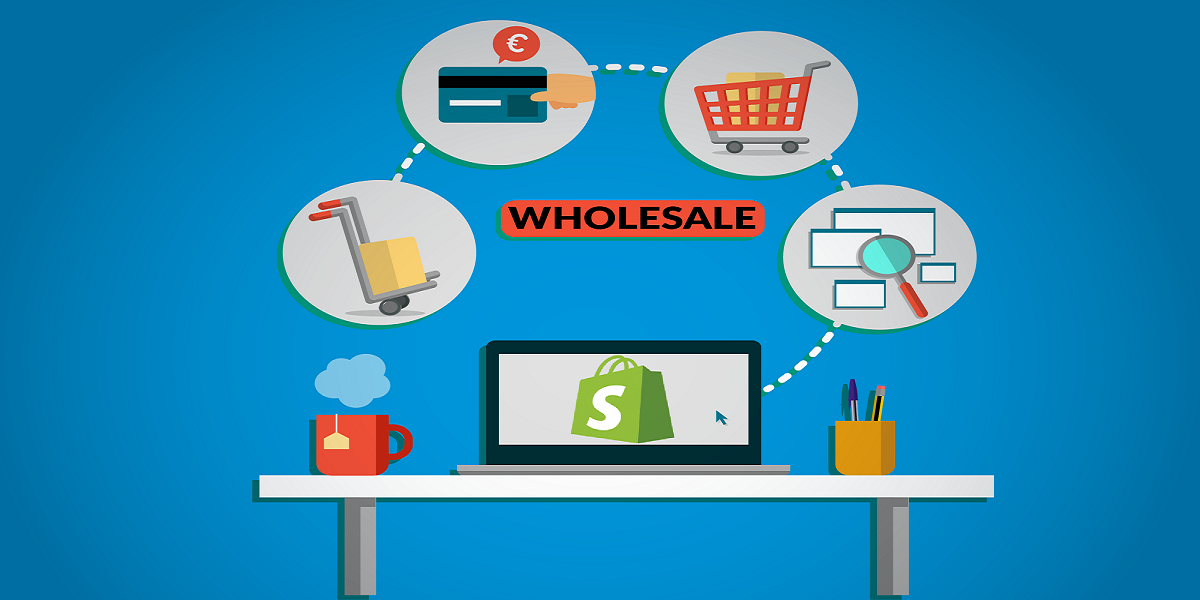
Advantages:
- Selling Established Items: One of the most outstanding features of wholesale is lower risk. As you are working with brands that have already set a name in the market, you won’t take the risk of selling products that nobody wants to buy.
- Brand Familiarity: Because the products are validated, your brand will be positively affected and trusted by customers.
Disadvantages:
- Product Differentiation: As mentioned above, established products can be both beneficial and detrimental for your business. Many other retailers sell the same products as you, so you need to find a way to distinguish yourself from the crowd. Only by that will customers purchase your products, not other people’s.
- Price Dependence: Once you sell products of other brands, you need to follow their rules. Some even set the price so that you can’t discount their products.
- Inventory Management: Wholesaling means that you have to purchase a particular order for each product. Therefore, you need to stock and manage the inventory.
Makers
Many people enjoy the hobby of making products, from accessories and clothes to more complicated things like hand-made beauty products.
Makers exist to serve this kind of people. If you have your own unique ideas, good at producing goods, and have available resources, you had better try this business model once in your life.

Advantages:
- Small Startup Costs: Unlike manufactured products, hand-made ones don’t require too many products upfront. Therefore, you can save a relatively significant production cost.
- Quality Control: Because it’s you who produces, your products are closely controlled and completely live up to your expectations. If there is something that customers aren’t satisfied with, you can quickly fix or adjust it.
Disadvantages:
- Time-consuming: It’s obvious that human beings are less effective than machines, so hand-made products take a longer time than manufactured ones.
- Scalability: When your business blooms, your labor productivity can hardly cope with market demand.
- Limited Product Type: You can only sell products that you could do and have available resources. Therefore, your products are not different and diverse.
Print-on-demand
In general, print-on-demand is when you make a product that features your designs then post it on Shopify. If a customer finds your item interesting and wants to make an order, a third-party service will pack and ship the order for you.
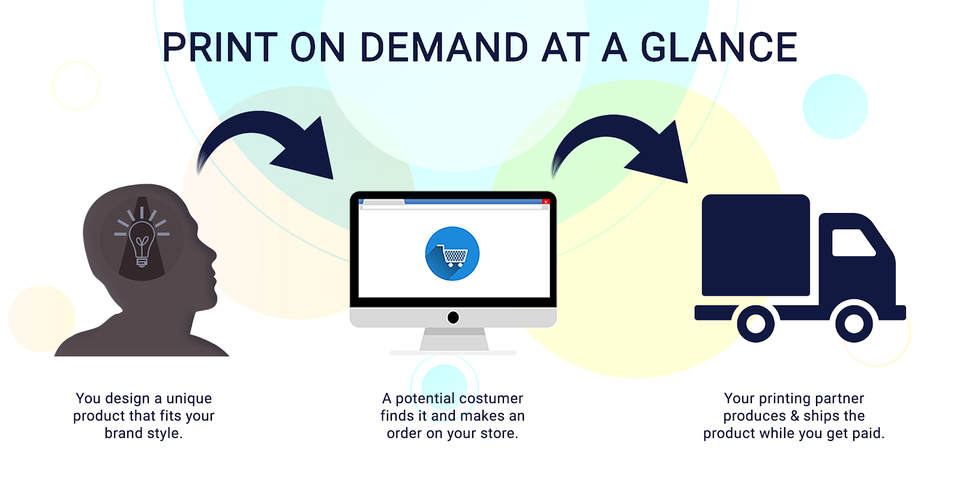
Advantages:
- Low Upfront Cost: Similar to dropshipping, you don’t hold inventory and therefore not wasting money for this process.
- Automated Shipping: Shipping and fulfillment will be handled by suppliers, so you will have more time for designing and customer service.
- Quick Production: Once you come up with a design, you can immediately make the product and show it on your website.
Disadvantages:
Limited Customization: What aspects could be customized depends largely on vendors and products. When finding which products to customize, you should think about base costs, available sizes, and techniques.



